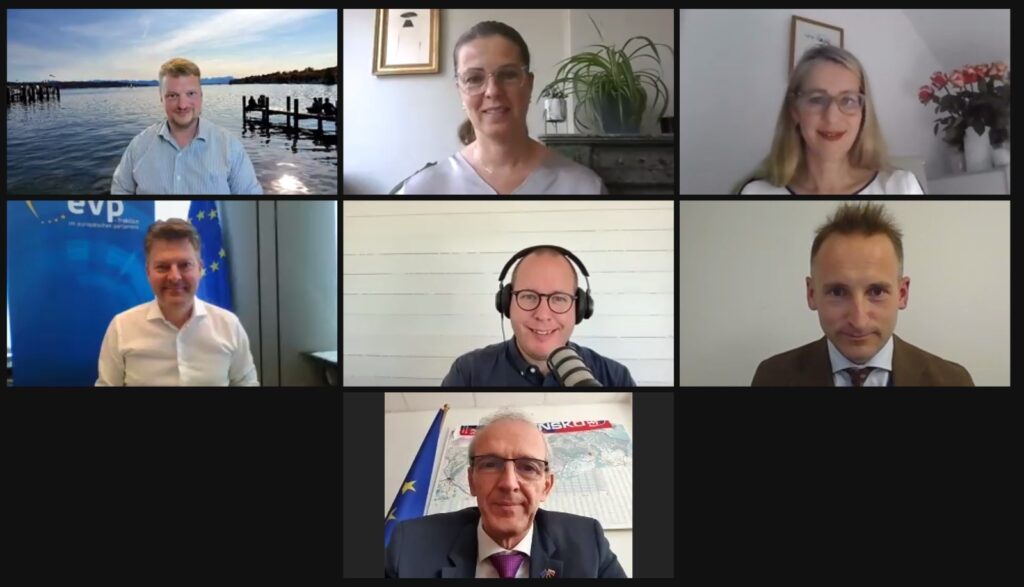The Digital Markets Act: What is the Right Way to Regulate the Tech Industry To Empower SMEs?

On Wednesday, June 16 th , SME Europe of the EPP organized the webinar on Digital Markets Act: What is the Right Way to Regulate the Tech Industry To Empower SMEs? to discuss how to cultivate a regulatory environment that nurtures SME access to world-class digital services and a global customer base and abstain from policies that indirectly increase
the cost of digital services.

Moderated by Dr. Horst Heitz, Executive Director SME Europe of the EPP, the virtual meeting saw high-level speakers such as Dr. Ivan Štefanec MEP, IMCO, ITRE, AIDA Committees, President SME Europe of the EPP; Marcin Nowacki, Vice-President Union of Entrepreneurs and Employers (ZPP), Member of EESC; Dr. Andreas Schwab MEP, IMCO, FISC, ECON Committees, IMCO Committee Rapporteur on the DMA; Dr. Ulrike Suchsland, Senior Legal Counsel, Competition and Consumer Policy, BDI; Dr. Joakim Wernberg, Author “Innovation, Competition and Digital Platforms Paradoxes”, Swedish Entrepreneurship Forum; Dr. Adina Claici, Director Brussels Office, Copenhagen Economics.
Introducing the topic, Dr. Ivan Štefanec MEP stated that the regulation has to be simple and clear, but at the same time sustainable. He also mentioned how crucial for SMEs is to support and improve access to data.
In his opening speech, Marcin Nowacki suggested keeping in mind how all digital regulations and agenda are part of one package, in order to prevent the possible unintended conflicts between legal acts. Said regulation also needs to maintain a level playing field among the entire business ecosystem in terms of AI opportunities. Besides, it has to handle the invasive Chinese economy and bring Europe to the front.
Dr. Andreas Schwab MEP highlighted competition and the importance of levelling playing field. Conversely, there is definitely a case of unfair treatment between newcomers, smaller players and big companies which can use network effects to create a system they can completely control and dominate. In the interest of our economy, of our democracy, of our citizens and of our SMEs, clarity is needed for newcomers and SMEs.
Dr. Ulrike Suchsland, informing about the position of BDI, shared their support for the European Commission’s initiative and the goal of ensuring balanced and effective competition on digital platforms. On the other hand, Europe needs an open and competitive digital ecosystem that enables innovation. Therefore, it’s imperative that the DMA should not hamper growth and innovation.
Dr. Joakim Wernberg raised concerns that, even though the regulation is aimed at hitting the largest companies and protecting the smallest ones, it might end up negatively impacting all players regardless of size. There might be a paradox that, if we regulate too much, we can destroy innovation by creating unwanted hurdles, too hard for SMEs to overcome.
Dr. Adina Claici spoke about the risks of opening free access to data.. Since analyzed and processed data has added value, setting a price point is a complex issue. Moreover, many smaller companies don’t have the needed resources (ex. machines) to actually make use of the data.

